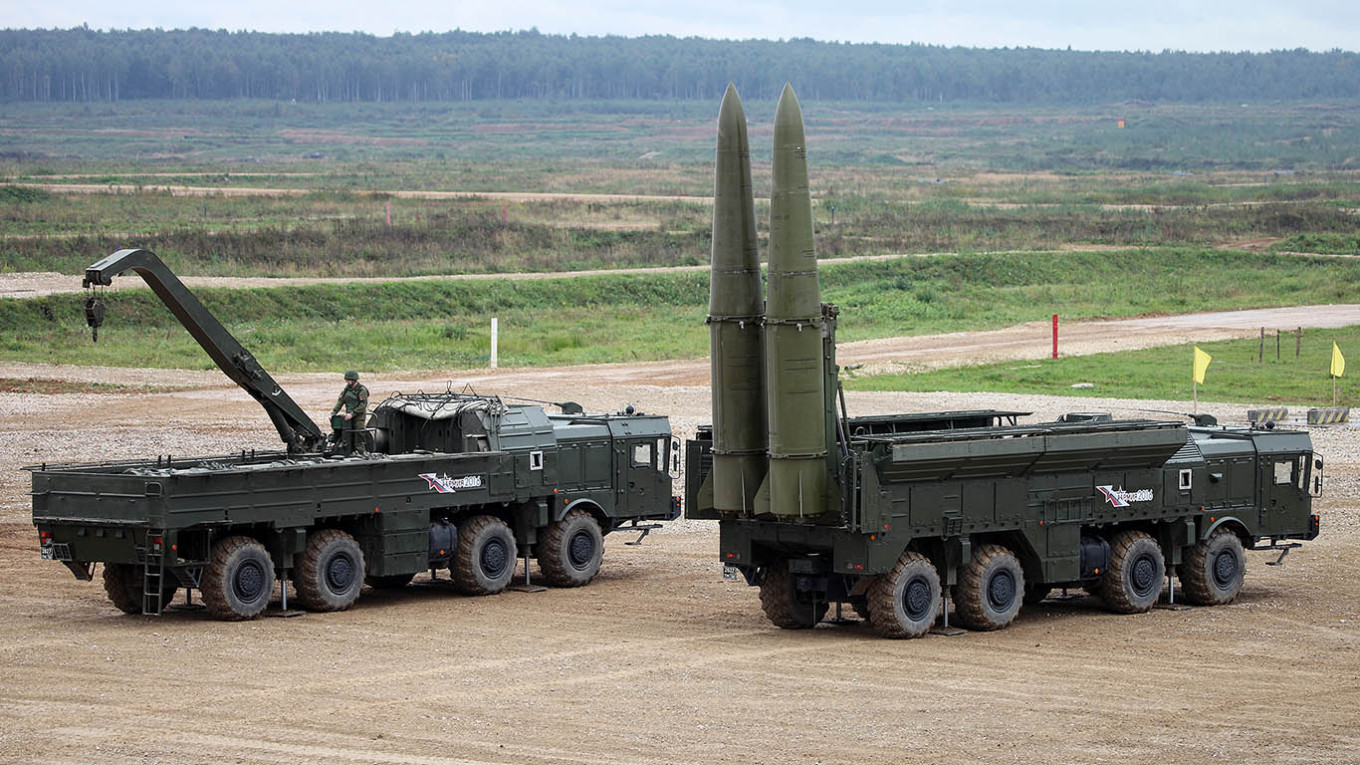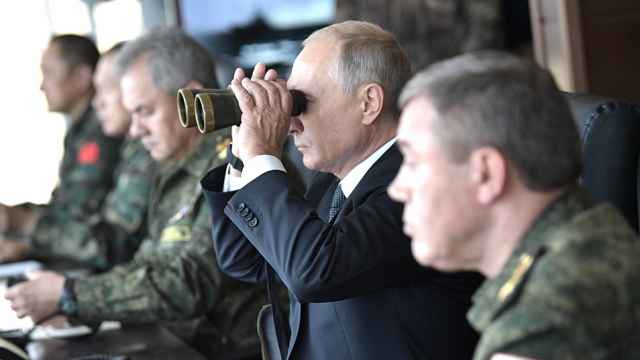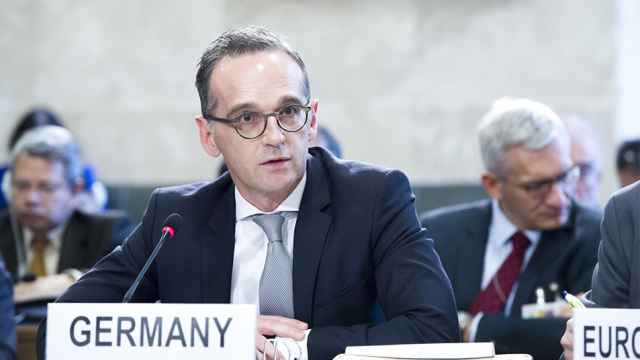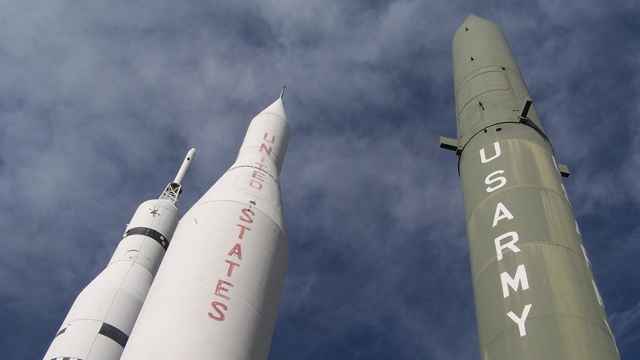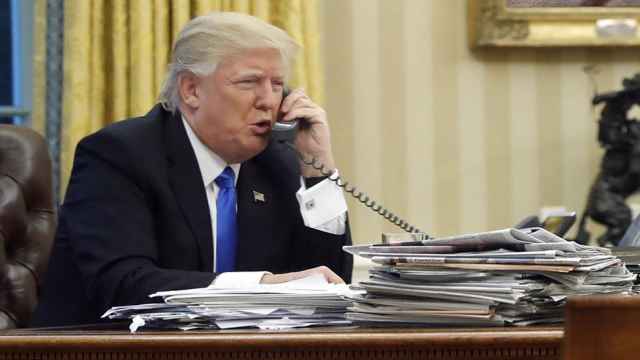Russia’s decision to abandon its moratorium on deploying intermediate-range ballistic missiles could set the stage for a new arms crisis, experts warn.
Moscow and Washington had been barred from possessing missiles with ranges between 500 and 5,500 kilometers under the 1987 Intermediate-Range Nuclear Forces (INF) Treaty. Though the accord collapsed when the U.S. withdrew in 2019, accusing Russia of violating the agreement, Moscow said at the time it would continue to abide by a moratorium if the U.S. did not deploy missiles within striking distance of Russia.
On Monday, Russia’s Foreign Ministry announced that Moscow will no longer observe its self-imposed ban, citing what it described as growing threats from the U.S. and other Western countries, including recent U.S. missile activity in Denmark, the Philippines and Australia.
“This means Russia no longer has any restrictions in this regard. Russia no longer considers itself bound by anything,” Kremlin spokesman Dmitry Peskov told reporters Tuesday, adding: “One should not expect a formal announcement [of the president’s decision on deploying such systems]. This concerns the defense sphere, which is a sensitive and non-public matter.”
“This date could go down in history as the start of a new missile crisis in Europe,” said Russian military expert Yury Fedorov.
“There will be a missile arms race on both sides,” he said. “We will have to endure a rather tense period when missiles are being deployed both in the West and in the East.”
Yet despite the heightened tensions between Moscow and the West, Russia’s withdrawal from the moratorium “should not be viewed in isolation as some sort of apocalypse — it is part of Russia’s nuclear escalation game,” said former Russian diplomat Boris Bondarev said.
“If these missiles are deployed, it will primarily be up to those responsible for military planning in the U.S. and Europe to take measures to neutralize such threats,” Bondarev said.
“For the general public, it doesn’t fundamentally change the situation. When a nuclear power has spent four years frequently threatening other countries with nuclear strikes, we have long been living in that reality — no moratoriums or withdrawals from them change that in any qualitative way,” he continued.
Russia previously said that it would take “mirror measures,” including boosting the Navy’s coastal forces and expanding the deployment of hypersonic weapons, if the United States deployed intermediate- or shorter-range missiles anywhere in the world.
Russia’s “top priority is to ensure the timely detection and interception of such missile launches, while also finalizing all aspects of mass production and deployment of similar domestic strike systems, including hypersonic weapons,” President Vladimir Putin said in December.
Putin also announced last week — just days before the moratorium was lifted — that Russia would ramp up mass production of the Oreshnik experimental ballistic missile, which has a range of up to 5,500 kilometers and capable of carrying nuclear warheads.
Pro-Kremlin Telegram channels also linked the Foreign Ministry’s announcement to the news that the first serially produced Oreshnik, first launched in November in a strike on Ukraine's Dnipro, had entered service.
“Russia is likely ready to deploy the first fully formed battalion of SS-X-34 Oreshnik intermediate-range missile systems,” the Telegram channel MilitaryRussia suggested.
Alongside the Oreshnik, the most likely missile to be deployed сould be the Iskander-M ballistic missile, according to the pro-military Telegram channel Voenny Osvedomitel.
Nikolai Sokov, a former Soviet and Russian arms control negotiator and senior fellow at Vienna Center for Disarmament and Non‑Proliferation, said that the launch of the Oreshnik missile last year effectively signaled that Russia was no longer adhering to the moratorium.
Monday’s announcement “was unnecessary — everything was clear last fall after the launch of Oreshnik. It was a clarification of earlier Putin's statement about serial production and also a signal to Europe under conditions of rapidly rising tension (no impact, tho),” he said on X.
Dara Massicot, a senior fellow at the Carnegie Endowment for International Peace, said that the INF Treaty collapsed after the U. S. accused Russia of developing and deploying the SSC-8 ground-launched cruise missile (9M729), whose range they said violated the agreement’s limits.
“INF fell apart because of Russia's SSC-8 GLCM, Russia launched the Oreshnik ballistic missile against Ukraine at a distance that INF once regulated, Putin stations tactical nukes in Belarus and mulled putting Oreshnik there last year, and now [Russia] reframes and blames the West,” Massicot said.
Pavel Podvig, director of the Russian Nuclear Forces Project, argued that Washington could have heeded Russia’s 2020 offer to both sides to halt the deployment and testing of intermediate-range missiles.
"If the U.S. had seriously engaged with Russia’s October 2020 proposal for a moratorium on INF-range missiles and the 9M729 system, for example by forming negotiating teams at the July 2021 summit, the war in Ukraine might have been averted," Podvig said.
Arms control expert Andrey Baklitskiy also said Russia’s moratorium proposal had been “an invitation to a discussion on how to regulate ground-launched INF-range systems after the treaty disappeared.”
“It was a concrete arms control proposal Russia put out and was willing to discuss — this doesn’t happen that often. Something you could have picked up at the first opportunity. Now it’s apparently off the table,” Baklitskiy said.
“Strategically, the Russian decision to walk back the moratorium was because everyone [including Russia] was building and planning to deploy INF-range systems. What triggered this specific choice at this specific moment is less important,” he said.
“Again, the moratorium proposal was less of a solution than an invitation to a dialogue that never happened,” he continued. “It doesn’t mean there couldn’t be a diplomatic process in the future to address this issue. But it seems that for the moment, the mood is to build, not to talk.”
A Message from The Moscow Times:
Dear readers,
We are facing unprecedented challenges. Russia's Prosecutor General's Office has designated The Moscow Times as an "undesirable" organization, criminalizing our work and putting our staff at risk of prosecution. This follows our earlier unjust labeling as a "foreign agent."
These actions are direct attempts to silence independent journalism in Russia. The authorities claim our work "discredits the decisions of the Russian leadership." We see things differently: we strive to provide accurate, unbiased reporting on Russia.
We, the journalists of The Moscow Times, refuse to be silenced. But to continue our work, we need your help.
Your support, no matter how small, makes a world of difference. If you can, please support us monthly starting from just $2. It's quick to set up, and every contribution makes a significant impact.
By supporting The Moscow Times, you're defending open, independent journalism in the face of repression. Thank you for standing with us.
Remind me later.



